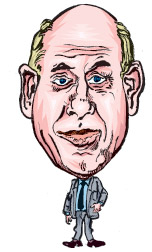US reaffirms support to reconciliation process

Responding to queries over the ongoing private visit of President
Mahinda Rajapaksa, the US State Department on Friday reaffirmed its
support to the Sri Lankan domestic process on accountability issues now
before the Lessons Learnt and Reconciliation Commission (LLRC).
Assistant Secretary Philip J. Crowley told reporters in Washington on
Friday that the US is supporting Sri Lanka’s process, when asked about
calls to investigate President Rajapaksa for alleged violations of
humanitarian laws, adding that there was no reason for the Government to
block the private visit of President Rajapaksa to the US. “We have made
strong public statements and are supporting what Sri Lanka is doing.
It’s a process that is still ongoing,” he said.
“There is a Lessons Learnt and Reconciliation Commission that has
been receiving testimony from hundreds of people. I think its mandate
has been extended to June this year, at which time it will make a report
to President Rajapaksa.” The State Department official has said that
they have not scheduled official meetings between Robert O Blake or
Secretary of State Hillary Clinton and President Rajapaksa as he was
there on a private visit. There had been speculation that President may
meet Blake who was in Houston to attend a university function. When
asked why the US would not seize the opportunity while the Sri Lankan
President is in the country to meet him on the issue, the spokesman said
the process is still ongoing and will speak if necessary.
“We’ve had no trouble in communicating our views to the Government of
Sri Lanka,” Crowley said.
“We’re going to wait and see how this process unfolds, and if it
falls short, we will not hesitate to say so,” he said.
The LLRC has heard hundreds of testimonies from all over the country
and the panel of experts and its work has received commendation from the
UN and the Secretary General.
The LLRC is expected to wrap up the hearings shortly to finalise the
report to the President.
The United Nations Secretary General and many members of the UN
expressed the desire to see a continuation of the domestic process in
contrast to a few controversial human rights watchdogs that have
expressed opposite views.
|

